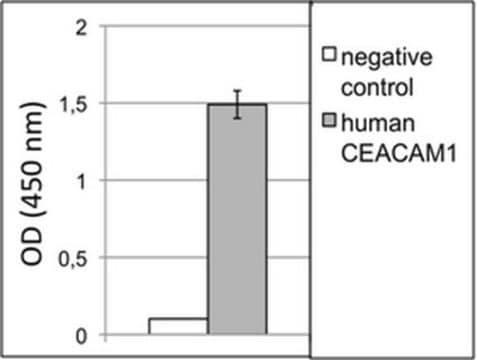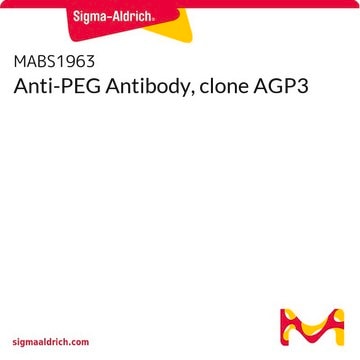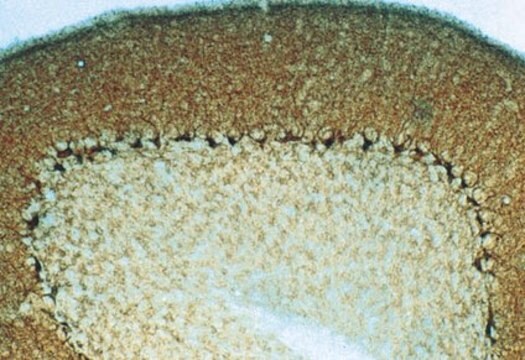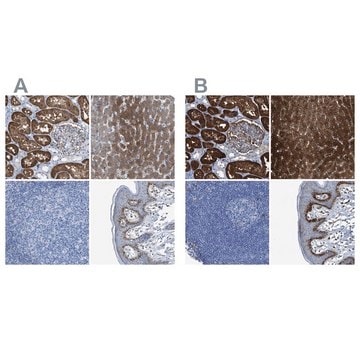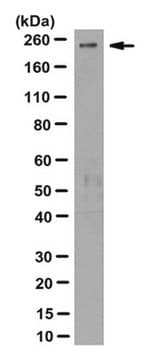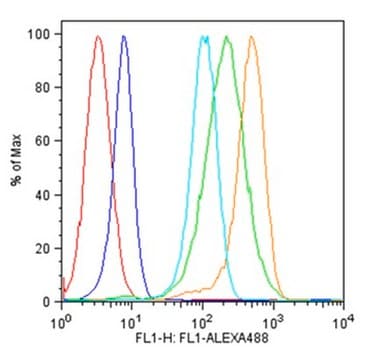MABT1365
Anti-Tropomyosin-1 Antibody, clone 7F8B8
clone 7F8B8, from rat
Synonym(e):
Tropomyosin alpha-1 chain, Alpha-tropomyosin, Tropomyosin-1
About This Item
Empfohlene Produkte
Biologische Quelle
rat
Antikörperform
purified immunoglobulin
Antikörper-Produkttyp
primary antibodies
Klon
7F8B8, monoclonal
Speziesreaktivität
human, mouse
Verpackung
antibody small pack of 25 μL
Methode(n)
immunocytochemistry: suitable
western blot: suitable
Isotyp
IgG2aκ
NCBI-Hinterlegungsnummer
UniProt-Hinterlegungsnummer
Posttranslationale Modifikation Target
unmodified
Angaben zum Gen
human ... TPM1(7168)
Allgemeine Beschreibung
Spezifität
Immunogen
Anwendung
Zellstruktur
Qualität
Western Blotting Analysis: A 1:500 dilution of this antibody detected Tropomyosin-1 in mouse embryonic fibroblast (MEF) lysate.
Zielbeschreibung
Physikalische Form
Lagerung und Haltbarkeit
Sonstige Hinweise
Haftungsausschluss
Sie haben nicht das passende Produkt gefunden?
Probieren Sie unser Produkt-Auswahlhilfe. aus.
Analysenzertifikate (COA)
Suchen Sie nach Analysenzertifikate (COA), indem Sie die Lot-/Chargennummer des Produkts eingeben. Lot- und Chargennummern sind auf dem Produktetikett hinter den Wörtern ‘Lot’ oder ‘Batch’ (Lot oder Charge) zu finden.
Besitzen Sie dieses Produkt bereits?
In der Dokumentenbibliothek finden Sie die Dokumentation zu den Produkten, die Sie kürzlich erworben haben.
Unser Team von Wissenschaftlern verfügt über Erfahrung in allen Forschungsbereichen einschließlich Life Science, Materialwissenschaften, chemischer Synthese, Chromatographie, Analytik und vielen mehr..
Setzen Sie sich mit dem technischen Dienst in Verbindung.
